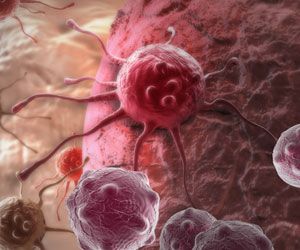A new study has found that risk factors for breast cancer, dense breasts and sex hormone levels are not linked together as earlier assumed.
A new study has found that risk factors for breast cancer, dense breasts and sex hormone levels are not linked together as earlier assumed.
It had been a common belief that the risk associated with dense breasts merely reflects the same risk associated with high levels of circulating sex hormones.The study was conducted by a team of researchers including Celia Byrne and Rulla Tamini at Georgetown University Medical Center.
As part of the study researchers evaluated hormones in their blood and measured breast density using a computer-assisted analysis of mammograms in 773 postmenopausal women who had breast cancer and 520 who didn't. None of the women were using hormone replacement therapy (HRT) at the time they were evaluated.
The study found that the relative risk of developing breast cancer in post-menopausal woman with dense breasts was 400 percent higher than in women with fatty, non-dense breast tissue, and that high versus low levels of hormones (estrogen and testosterone) increased the relative risk by 200 percent. Adjusting for a woman's circulating hormone levels did not reduce the risk associated with the level of breast density.
Researchers also found that these independent risk factors have additive effects so if a woman had both dense breasts and excess hormones, her risk was increased by 600 percent.
"Our assumption was that this study would confirm what everyone had believed ? that hormone levels explain breast density. This presumption of an association between hormone levels and breast density was based on "the circumstantial evidence, such as the fact that during pregnancy, when hormones increase, breasts also grow in size. But that is not what our study showed,” Byrne said.
"We have found that dense breasts are not a marker for higher hormone levels, or vice versa, and this tells us each increases breast cancer risk via a different biochemical pathway," Byrne added.
The findings of the study were published in the August issue of the Journal of the National Cancer Institute.
Source-ANI
LIN/J











